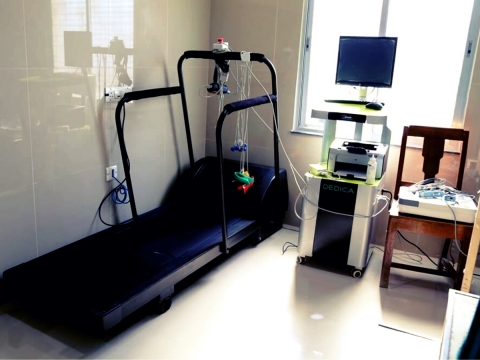Tread Mill Test (TMT)

 TMT stands for Tread Mill Test.
TMT stands for Tread Mill Test.
It is a screening tool to test the effect of exercise on the heart. In this test patient is made to walk on a treadmill and electrical activity of the heart is measured with an ECG, and blood pressure recordings are taken every few minutes.
As per a standard protocol patient is made to walk till target heart rate is reached, but if the patient develops chest discomfort or ECG changes the test is terminated. A stress test, often times called a treadmill test or exercise test, helps a doctor find out how well your heart handles work.
As your body works harder during the test, it requires more oxygen and in effect the heart must pump more blood. The test can show if blood supply is reduced in the arteries that supply the heart.
Treadmill testing (TMT) or cardiac stress testing is a non-invasive test done to find the stress on the heart. It involves recording the 12-lead ECG before, during, and after exercise on a treadmill for diagnosis of subCenteral or latent ischaemia (decrease in blood supply to organs. The Tread Mill test is conducted on an extra long treadmill to provide an extra margin of safety to patients. Its smooth and silent operation facilitates accurate blood pressure measurements even at high workloads.
The variable speed range permits diagnosing of patients with varied health backgrounds.
The test is recommended:
- To evaluate for coronary artery disease
- To evaluate for worsening angina
- To identify rhythm changes that may occur during exercise
- To evaluate the significance of valvular stenosis
The test is usually positive when the coronary stenosis is >70%.